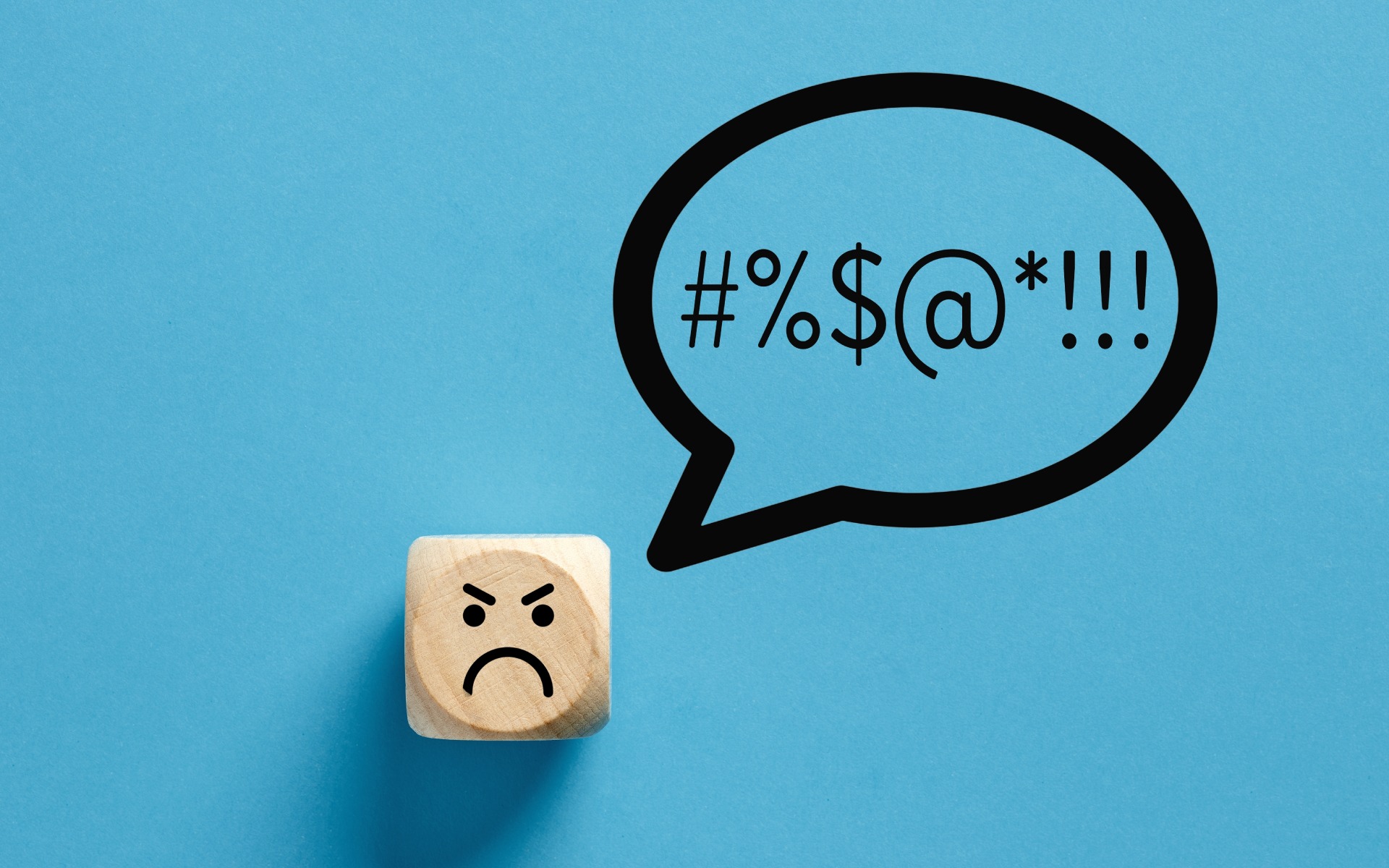When did Marketing Start to Condone Profanity?
April 19, 2016
The arguments the followed were quite literally
astounding! The debate raged on both sides and included just about every justification you could mention. The only conclusion you could come to was – that feelings ran high, very high, and long.
The New York Times blog opened up a
debate about profanity with many educated authors contributing their position on curse words, where they came from and their effect. They ranged from:
“People need special words to convey emotion, which is, by nature, ineffable. For those who use them, swear words are linked to emotion in a visceral way. People who speak more than one language report that they always curse in their native tongue; they can say swear words in a second language but they don’t feel them — the gut link to emotions just isn’t there” –
Deborah Tannen, Professor of linguistics.
“Uttering a taboo word in public is a great hierarchy-buster. It also gives you an extra boost in a society that is becoming ever more competitive” –
Lee Siegel, columnist.
“Purity of speech has been associated for so long with power in public life in the English speaking world that it is almost inconceivable that it could ever have been different” –
Tony McEnery, Professor of English.
From that debate we came to the conclusion that profanity is ‘out there’ and has always been ‘out there’. But does that make give it the right to being used as a language for marketing?
When you look at
the facts you know that most people swear from time to time but for some that is becoming
all the time. The problem is, the people around you have to listen. Being in marketing you are in the profession of saying things that you
want people to listen to. You have a choice whether you swear or not in a campaign, but they
have to listen. By the time they realise it’s in there and it’s not what they want to hear, they can’t make the choice – it’s too late. It’s in there.
I am not saying don’t swear, that’s a facile way to look at it, what I am saying is do you really know the cost of swearing to your audience? Because it comes with a cost – always.
ALIENATION
Profanity, and to a lesser extent blasphemy, offend people. Yes, there is a percentage of your audience that swears like a paratrooper and inserts profanity is places you can’t slide a sheet of paper between, but are they the majority? Cussing is still a mostly private language in many cultures – even people that swear occasionally find it off putting in public.
Marketers may feel that it ‘gives them an edge’, but unless you have a niche audience, maybe people are made uncomfortable by swearing and that is not the ideal selling environment.
Many marketers get around the problem by replacing the letters with special characters, in other words, implying the profanity explicitly so it can’t be mistaken but without actually inserting the word. The audience is not fooled, but it can be more ignorable. Does it lessen the effect of the cuss? No.
People are not stupid. They know what you were trying to imply and attitude you were trying to imply it in.
Another course of action is to use it very cleverly, like in this advertisement for Asia Air:
Or an advertisement I one saw for American giant ‘Sofa King’. The tag line on that campaign was ‘Our Prices are Sofa King Low’.
Yes, it’s very clever, but is it less offensive? No. We’re back to the point about people not being stupid. However clever you are, if you choose to use profanity you chose to alienate people.
BRAND DEFORMATION
Swearing hurts your brand, there’s no two ways about it.
Think about your work situation. Have you ever worked with anyone that constantly swears? The type of person with whom nothing could be discussed unless you mentally bleeped out every other word. How was that person viewed by their peers, and more importantly, their managers? If they were a brand – how did swearing help their marketing?
That may seem like a subjective comparison, but the employment website
CareerBuilder.com who gives advice on creating a successful career provided research that employees who were prone to profanity were less like to be liked, and far less likely to be promoted.
Fox Business news reported:
“The study showed that 64% of employers think less of an employee who swears repeatedly, and 57% said they are less likely to promote someone who using curse words. A further 71% of employers said that swearing shows a “lack of control,” while 68% says swearing demonstrates a “lack of maturity.” Perhaps most interestingly, says CareerBuilder.com spokesperson Jennifer Grasz, is that 54% of employers said that swearing made their employees appear “less intelligent.”
NCSASPORTS, an influential sports recruiting business, actively warns those considering a top level sports career that profanity can cost them a scholarship.
Those are not significant numbers, and if you choose to use swearing as a medium to ‘connect’ with your audience it may just have the opposite effect on your brand.
The negative effect of swearing on a brand has all to do with perception. People who use profanity are
considered to be of low intelligence, lack maturity and have a low work ethic. Is that really how you want your brand to be viewed? It takes a lot of hard work to build a brand, but it would seem all it would take in one misjudged word to bring all crashing down around you. Even
Google’s Panda and Penguin updates downgraded websites that use cuss words on the fact they were of a lower quality.
This excellent article by
JoelComm.com brings this to life. Use profanity and you lose respect. As he sums up:
“If you are disrespectful of your audience, the impact of your message is going to be diminished.”
As a co-worker said to me as we discussed
profanity and marketing, “I used to think swearing was cool and made me more likeable, but then I left High School and grew up”.
EFFECT
My co-worker hit on another problem with using profanity – it no longer has the effect it used to. It was seen as cool, rebellious and edgy when you were 14, but now it would barely raise an eyebrow if you heard it in the office. Cussing does not have the power it used to. It is no longer edgy. Or Cool. Or shocking. Or furtive. In most cases people simply sigh and close their ears to it. The majority of people no longer want to hear it constantly – because of how hard it is to filter out. Cuss words are by nature … negative. You use them to degrade, belittle – even bully – your opinion into prominence, and that can never be a good thing in marketing.
There is a point where anything that is so often repeated loses its potency. For instance; if you have peanut butter and banana sandwiches every day for the next forty years the chances are you’ll end up immune to the flavour, and that’s only one stage away from despising them all together. It’s the same with profanity. You become immune. It’s like writing in block capitals. If you permanently wrote in block capitals to make a point or underlined every word for emphasis, your recipient would soon learn to ‘phase’ it out. After a while anything that becomes incessantly repeated becomes ignorable background ‘noise’.
Even if it is being ‘filtered out’, it’s still getting in the way of your message.
Whether you choose to use swear words cleverly, blatantly or not at all is completely up to you. There is no set rule about it, as I said in the beginning, it’s all about the cost. The cost to you, your sales and your brand.
I choose to not use it. Why? Quite simply as I do my job to
connect with people. I want them to read/listen/engage, and for us it’s the right thing to do. After all, when the NY Times led the debate about the use of profanity it finished with this proviso:
‘Note from The NEW YORK TIMES Editors: Reader comments that include obscene words — including those that are not completely spelled out — will not be approved.’
‘Obscene’?
That really says it all, don’t you think?
 Talk to a person
Talk to a person


